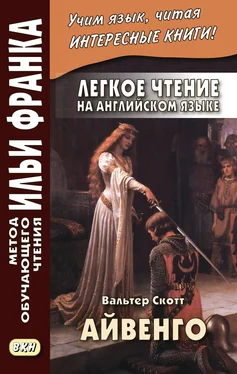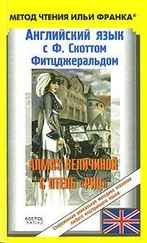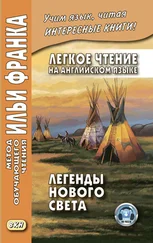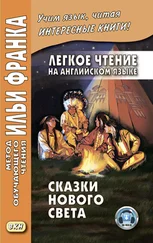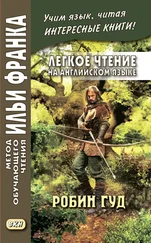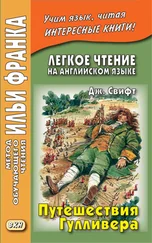At the sound of the herald’s trumpet(при звуках трубы герольда) the two sides galloped towards each other(противники: «две стороны» поскакали галопом = во весь опор навстречу друг другу; to gallop – скакать галопом, галопировать; скакать во весь опор /о всаднике на лошади/; towards – к, по направлению к ) . The crowd heard the lances break(толпа услышала, как ломаются копья) and saw that the challengers had knocked four of the knights off their horses(и увидела, как зачинщики турнира вышибли четырех рыцарей из /их/ седел: «с лошадей»; to knock – стучать; ударять, бить; to knock off – стряхивать, смахивать; разбивать /соперника, оппонента/; сбивать, сшибать, сносить ).
trumpet[‘trʌmpɪt] , gallop[‘ɡælǝp], towards[tǝ’wɔ:dz]
At the sound of the herald’s trumpet the two sides galloped towards each other. The crowd heard the lances break and saw that the challengers had knocked four of the knights off their horses.
The challengers rode back to their tents(зачинщики турнира поскакали назад, к своим шатрам; to ride ) and the defeated knights dragged themselves out of the lists(а поверженные рыцари потащились с арены; to defeat smb. – одержать победу /над кем-либо/, наносить поражение /кому-либо/; to drag – тянуть, тащить, волочить ) . A second and third group of knights came to fight against the challengers(вторая и третья группа рыцарей приезжали сражаться с зачинщиками турнира) , but they were no more successful(но они не были более успешными /в борьбе/; success – удача, успех, благоприятный исход; successful – благополучный, счастливый, удачный, успешный ) against the Templar and his fellow challengers(против храмовника и его друзей-зачинщиков турнира; fellow – приятель, товарищ, коллега, собрат ).
defeated[dɪ’fi:tɪd] , successful[sǝk’sesf(ǝ)l], fellow[‘felǝʋ]
The challengers rode back to their tents and the defeated knights dragged themselves out of the lists. A second and third group of knights came to fight against the challengers, but they were no more successful against the Templar and his fellow challengers.
When the crowd saw(когда толпа увидела = зрители увидели) that there were only three knights in the fourth group(что было только три рыцаря в четвертой группе) , they became very quiet(они притихли: «они стали очень тихими»; quiet – тихий, бесшумный, неслышный; молчащий; молчаливый ) , and whispered to each other(и шептались: «и шептали друг другу») that the Norman challengers were going to win the day’s tournament(что норманны-зачинщики турнира выиграют сегодняшний турнир).
fourth[fɔ:θ] , quiet[‘kwaɪǝt], whisper[‘wɪspǝ]
When the crowd saw that there were only three knights in the fourth group, they became very quiet, and whispered to each other that the Norman challengers were going to win the day’s tournament.
Cedric the Saxon was very unhappy with the outcome(Седрик Сакс был очень недоволен исходом /турнира/; happy – счастливый, довольный; unhappy – несчастливый; несчастный; грустный, подавленный; outcome – исход, итог, последствие, результат ) and he turned to Athelstane(и он повернулся = обратился к Ательстану).
“The day is against England, my lord(этот день неудачен для Англии: «против Англии» = сегодня Англия проиграла битву, мой господин; day – день; решающий день, битва, сражение; тж. the day is against us – мы проиграли битву, все кончено, наше дело – табак ) ,” he said to Athelstane. “Aren’t you going to take up your lance(разве вы не собираетесь поднять ваше копье; to take up – обсуждать /план и т. п,/; поднимать ) ?”
“I will fight tomorrow(я буду драться завтра) ,” replied Athelstane(ответил Ательстан) . “It is not worth it for me to fight today(это недостойно меня – драться сегодня; worth – стоящий /сколько-либо/; достойный, заслуживающий ) .”
unhappy[ʌn’hæpɪ] , lord[lɔ:d] , worth[wǝ:θ]
Cedric the Saxon was very unhappy with the outcome and he turned to Athelstane.
“The day is against England, my lord,” he said to Athelstane. “Aren’t you going to take up your lance?”
“I will fight tomorrow,” replied Athelstane. “It is not worth it for me to fight today.”
“Yes, it is better, but not easier(да, это лучше, но не легче; easy – удобный; легкий; легкий, нетрудный, незатруднительный ) , to be the best man among a hundred(быть лучшим среди сотни) , than to be the best man of two(чем быть лучшим из двоих) ,” said Wamba. Athelstane smiled at this(Ательстан улыбнулся на это) , but Cedric understood what the jester meant(но Седрик понял, что шут имел в виду) and gave Wamba an angry look(и бросил на Вамбу сердитый взгляд = посмотрел на Вамбу сердито).
hundred[‘hʌndrǝd], understood[,ʌndǝ’stʋd] , meant[ment]
“Yes, it is better, but not easier, to be the best man among a hundred, than to be the best man of two,” said Wamba. Athelstane smiled at this, but Cedric understood what the jester meant and gave Wamba an angry look.
“Are there any more knights(есть ли еще рыцари) who will fight against these challengers(которые сразятся против этих зачинщиков турнира) ?” shouted a herald from the tournament lists(крикнул герольд с арены турнира) , but no one came forward(но никто не вышел вперед) . Prince John began to talk to his friends(принц Джон начал говорить со своими друзьями) about giving the prize to Bois-Guilbert(о том, чтобы вручить приз Буа-Гильберу) . With a single lance(одним /ударом/ копья; single – один; единственный; единый; однократный, одноразовый ) , the Templar had knocked two knights off their horses(тамплиер выбил двух рыцарей из седел: «с коней») and broken the lance of a third(и сломал копье третьего; to break – ломать, разбивать /на части/; разрушать ).
Читать дальше
